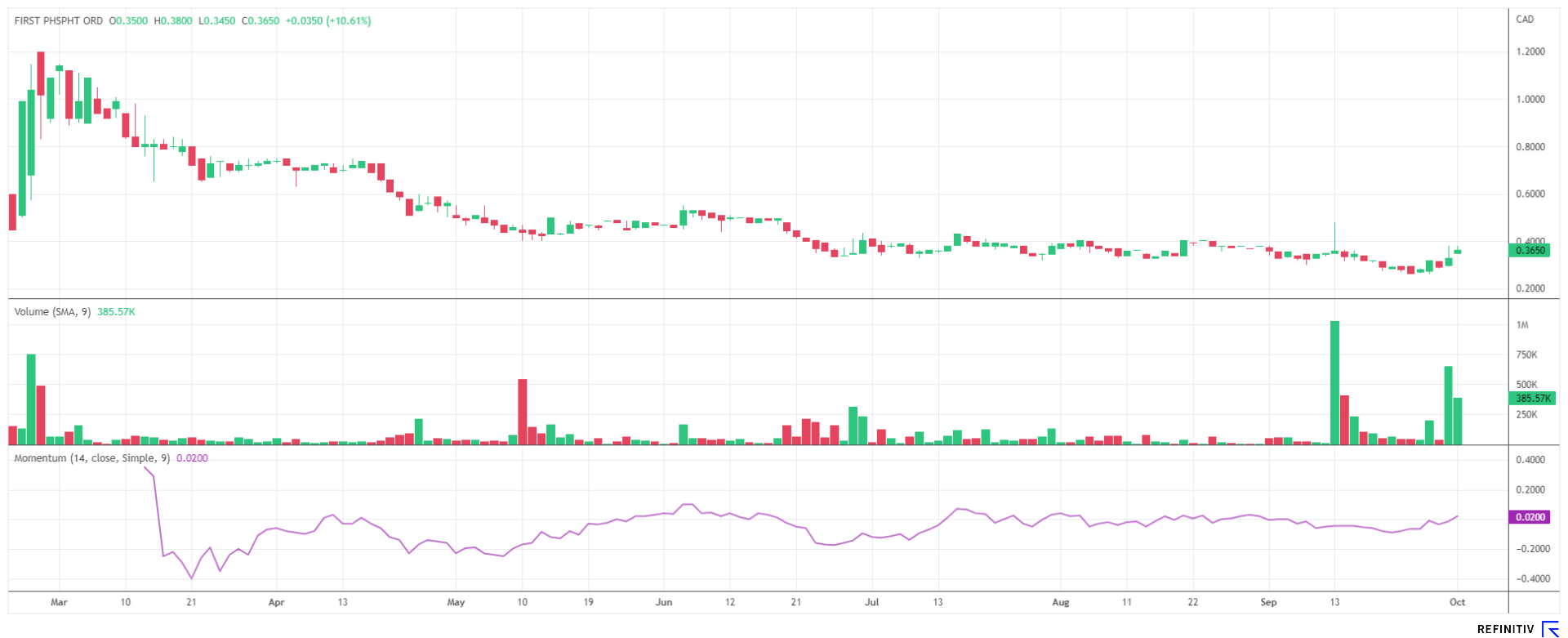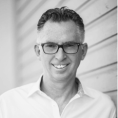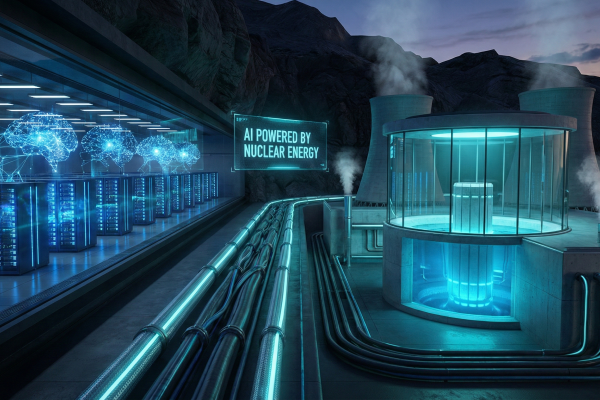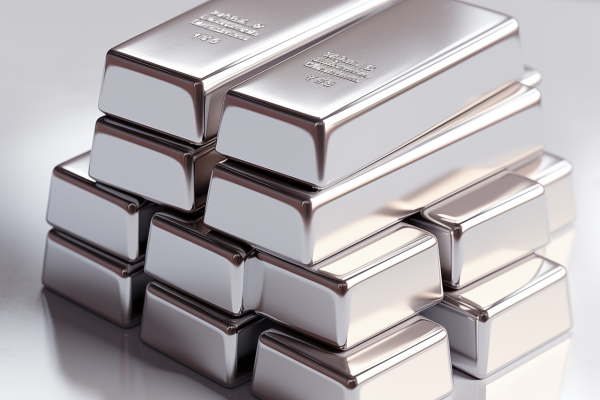October 4th, 2023 | 07:50 CEST
Mega battery deal at First Phosphate, BASF, VW and BYD with buy signals
The last IAA in Munich was a memorable showdown for the local automotive industry. More than 750 exhibitors from 109 countries showcased their e-mobility innovations. In addition to autonomous driving with AI support and various new technical features, however, one topic in particular preoccupied trade visitors: how can manufacturers get more power, longevity and safety into powertrain batteries? Li-ion technology has now been in use for over 20 years. But where is the future state of the art? BASF and First Phosphate have new developments to offer in this regard. Manufacturers like BYD and Volkswagen have the global market shares to make these innovations fly. Where should investing be done now?
time to read: 5 minutes
|
Author:
André Will-Laudien
ISIN:
FIRST PHOSPHATE CORP | CA33611D1033 , BASF SE NA O.N. | DE000BASF111 , VOLKSWAGEN AG VZO O.N. | DE0007664039 , BYD CO. LTD H YC 1 | CNE100000296
Table of contents:

"[...] Silumina Anodes® is a ceramic-coated graphite/silicon anode composite material that we plan to produce in Schwarze Pumpe, Saxony. Here, we aim to supply manufacturers of batteries for e-cars with an application-ready drop-in technology that is low-cost, high-performance and safe. [...]" Uwe Ahrens, Direktor, Altech Advanced Materials AG
Author
André Will-Laudien
Born in Munich, he first studied economics and graduated in business administration at the Ludwig-Maximilians-University in 1995. As he was involved with the stock market at a very early stage, he now has more than 30 years of experience in the capital markets.
Tag cloud
Shares cloud
BASF - Analysts have already priced in a lot
The world's largest chemical company, BASF, is suffering from high energy prices and a weakening economy. As an immediate measure, the Ludwigshafen-based company has been running a cost optimization program since the beginning of 2023, primarily affecting its central site. Up to 500 jobs will be lost, and structural adjustments will follow. In addition to a 10 billion investment in a new plant in China, a split-up is now also being considered. Rumor has it that smaller business units could be sold, such as automotive catalysts, parts of the coatings and nutrition activities, and Wintershall shares. Importantly, BASF plans to expand its battery cathode expertise to continue growing as an e-mobility and energy storage supplier. This market segment is expected to attract momentum of more than 20% per annum over the next few years.
The potential divestments from the portfolio could mean that free cash will also be sufficient to pay a dividend in the region of EUR 3 in 2024 despite the business coming under further economic pressure in 2023. Investors are therefore looking forward to October 31 with great excitement. Here, BASF will report on the further course of business in the 3rd quarter. In a recent study, however, the equity analysts at Baader Helvea Equity Research warn against overly high expectations. The experts suspect that the current consensus for the quarterly figures could even deviate from the consensus by up to 20%. However, this would also mean that the full-year figures would be 8% too high.
In the meantime, the experts at Refinitiv Eikon are only assuming sales of just under EUR 73 billion (minus 17%), and operating profit (EBIT) is expected to fall from EUR 6.9 billion to EUR 4.1 billion. Below the line, earnings per share will collapse from EUR 6.96 to EUR 3.68 and are not expected to climb back above EUR 5 until 2025. **We think a lot of negativity is already priced in here; the standard value is technically well protected in the area of EUR 38 and EUR 42 and offers a long-term dividend perspective.
First Phosphate - On the move with this deal
Now, back to the world of large batteries for e-mobility and much-needed energy storage. According to plans from Berlin, renewable energies such as wind, solar and water are to close the production gap from the shutdown of nuclear reactors in the long term. Experts estimate the additional demand at about 2.5 million solar roofs or about 5,000 wind turbines because the hydroelectric power sector seems to be already installed throughout Central Europe. This puts the need for state-of-the-art aggregate technology on the agenda because the current standard of Li-ion technology could soon become obsolete. Vehicles and stationary intermediate storage units must be charged and discharged in short cycles if they are to replace, for example, the base load capability of a continuous energy source such as nuclear power. However, since strong wind and abundant sunshine rarely occur simultaneously, and little renewable energy can be generated at night, high-performance storage systems with high capacity and a long service life are needed.
Canadian company First Phosphate (PHOS) is focusing on this potential game-changer and is betting on phosphate. The Montreal engineers, therefore, have phosphate extraction and purification on their agenda. The phosphate market is known worldwide from the fertilizer industry, but in light of the energy transition, phosphate also serves to produce active cathode material for the lithium iron phosphate (LFP) battery industry. A prerequisite is a high degree of purity and access to the supply chains of larger North American LFP battery manufacturers, because it is precisely they who need assured access to LFP cathode material of the best battery quality in order to launch a new and superior technology.
It is precisely at this point that First Phosphate is making a name for itself with a mega financing deal. They have reached an Expression of Interest with the Export-Import Bank of the United States (EXIM), which includes 10-year credit lines for the procurement of US goods and services of up to USD 170 million. Because the transaction can also count toward Section 402 of the US Rules, which supports US comparative leadership with China in specific export zones, this deal is fundamental in scope. Due diligence for approval is underway.
CEO John Passalacqua comments on the deal: "This is an extremely foundational development for the company. It provides non dilutive capital to the company which allows us to get through permitting on the mine, PPA facility and LFP facility without likely further equity dilution. We can now choose when to raise equity capital strategically.." With enough phosphate in the bag for the next generation of batteries, PHOS shares are poised for a new valuation with a market cap of just CAD 17.6 million.

BYD versus VW - The winner from the Middle Kingdom
With seven new models, BYD is pushing into the European sales markets. Not surprisingly, because with great strategic skill, the Chinese electric mobility provider has already anchored all vertical production stages in its corporate structure for a long time. At its European competitor VW, on the other hand, there have recently been repeated interruptions to production due to a lack of components. Most recently, the floods in Slovenia had a negative impact, and a small Tier 2 supplier of sprockets had to temporarily close its plant due to high flood damage.
VW and Tesla have already had to relinquish their former supremacy in the Middle Kingdom to BYD, with other manufacturers such as Geely and NIO following in great strides. In the field of battery technology, the Europeans are still dependent on Asian manufacturers such as CATL and Panasonic, as the new VW Gigafactory near the Spanish city of Valencia will not go online until 2026. In a chart comparison, VW has fallen by 15% in the last 12 months, whereas BYD continues to grow and can point to a plus of 12%. The market capitalization of the Chinese has already surpassed that of Volkswagen by 40%. Fundamentally, it seems that the market does not expect much dynamism from VW anymore, as it has one of the lowest P/E ratios at 3.6 based on 2023 estimates compared to its peer group, which is the lowest point in the last 20 years. BYD, on the other hand, has a relatively high P/E ratio of 24.6, which could be considered expensive. It is a tough choice!
Battery research will be a game-changer in the field of electric mobility. BASF, as a chemical giant, is well positioned here. VW is lagging behind Chinese producer BYD, but it should soon make an impressive comeback with its billions in equity. For those looking for speculative additions to their portfolio, First Phosphate could still deliver adequate returns with its current mega-deal.
Conflict of interest
Pursuant to §85 of the German Securities Trading Act (WpHG), we point out that Apaton Finance GmbH as well as partners, authors or employees of Apaton Finance GmbH (hereinafter referred to as "Relevant Persons") currently hold or hold shares or other financial instruments of the aforementioned companies and speculate on their price developments. In this respect, they intend to sell or acquire shares or other financial instruments of the companies (hereinafter each referred to as a "Transaction"). Transactions may thereby influence the respective price of the shares or other financial instruments of the Company.
In this respect, there is a concrete conflict of interest in the reporting on the companies.
In addition, Apaton Finance GmbH is active in the context of the preparation and publication of the reporting in paid contractual relationships.
For this reason, there is also a concrete conflict of interest.
The above information on existing conflicts of interest applies to all types and forms of publication used by Apaton Finance GmbH for publications on companies.
Risk notice
Apaton Finance GmbH offers editors, agencies and companies the opportunity to publish commentaries, interviews, summaries, news and the like on news.financial. These contents are exclusively for the information of the readers and do not represent any call to action or recommendations, neither explicitly nor implicitly they are to be understood as an assurance of possible price developments. The contents do not replace individual expert investment advice and do not constitute an offer to sell the discussed share(s) or other financial instruments, nor an invitation to buy or sell such.
The content is expressly not a financial analysis, but a journalistic or advertising text. Readers or users who make investment decisions or carry out transactions on the basis of the information provided here do so entirely at their own risk. No contractual relationship is established between Apaton Finance GmbH and its readers or the users of its offers, as our information only refers to the company and not to the investment decision of the reader or user.
The acquisition of financial instruments involves high risks, which can lead to the total loss of the invested capital. The information published by Apaton Finance GmbH and its authors is based on careful research. Nevertheless, no liability is assumed for financial losses or a content-related guarantee for the topicality, correctness, appropriateness and completeness of the content provided here. Please also note our Terms of use.




